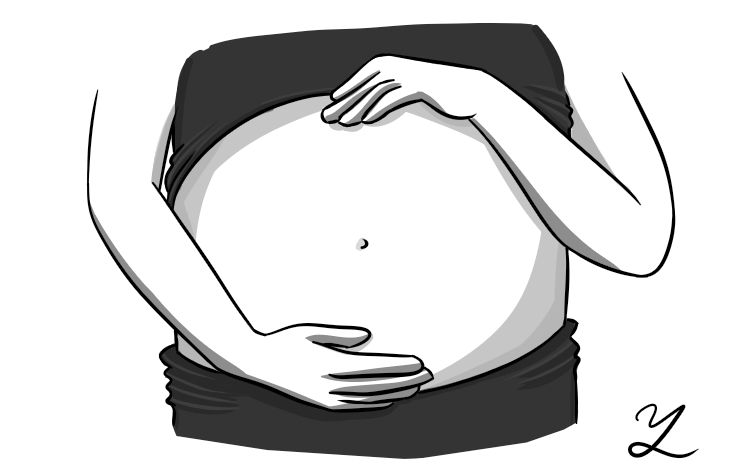
I spent this previous Friday afternoon with fellow members of Choose Life at Yale (CLAY), Yale’s pro-life organization, giving away cupcakes and talking with other students about abortion in Bass Cafe. We laid out a handmade timeline of fetal development titled “When do human rights begin?” and gave those who passed by neon dot stickers to place on the poster. We had over 30 students place stickers on the timeline at many different stages of development, demonstrating there are a wide variety of viewpoints at Yale about when personhood begins. Though we might expect Yale students to be overwhelmingly in favor of broader accessibility of abortion, I discovered that when you ask basic questions about the nature of human development, people challenge their own assumptions.
One friend placed his dot firmly at birth, arguing that human rights are conferred on an individual only when one physically enters society. Another student placed her sticker earlier at 21 weeks. This is the point of “viability,” the earliest point at which a premature baby can survive outside the womb given current neonatal technology. This is also roughly the point of development at which the Supreme Court ruled in “Planned Parenthood v. Casey” that abortion (for all reasons) must be permitted in all 50 states. In more liberal states, abortion is available “on demand” up to the third trimester (27 weeks).
And yet, many students — even of those who called themselves “pro-choice” — expressed that personhood starts at a point much earlier than this legal standard. They felt that such characteristics as perceptible movement and having a fully developed sensory system (16 weeks), or possessing a fully functioning kidney, intestines, brain and liver (10 weeks), demonstrated that the fetus had the right to live.
Some participants even put their stickers at five weeks, at which point the embryo, even though it’s only the size of a sesame seed, has a beating heart.
Then there were the participants who placed their neon dots at the moment of conception itself. Some placed their stickers there because their beliefs, religious or not, affirm an innate value in each human life the moment fertilization occurs. Some did so because they believe that a society that encourages the violent act of abortion, instead of acting to truly support all of its expectant mothers, is no society at all. Some did so because they think that a legal standard that permits abortion “on demand” works against meaningful change for the status of women in society.
I agree with those students who argue that personhood begins at conception. Human rights should not be granted only on the basis of possessing self-awareness, a functional sensory system or the ability to consciously move. Think of someone you know who lacks some or all of these capacities, and ask yourself, are these people any less human than I am?
Regardless of any of the differing philosophical conceptions of human worth, it is scientific fact that all the genetic information necessary for the essential characteristics of a person are present in the 23 pairs of chromosomes in the human zygote at fertilization. The physical characteristics of this new human will change as it grows from embryo to fetus to baby to toddler and so on; at every stage, it is the same human worthy of the same protection from unjust death.
Pro-lifers do not deny that pregnancy can be a difficult, disruptive and downright dangerous thing for women. Within the pro-life framework, it can still be morally permissible for a physician to induce labor early or to otherwise remove the fetus from the womb in cases where the health of the mother is truly at risk (i.e. ectopic pregnancy or eclampsia). In these cases the physician acts to preserve as much life as possible, rather than with the intent to kill. These situations are difficult and they do happen. But resolving them properly requires a full acknowledgment of the personhood of the growing fetus.
Abortion is not something that is rare in practice. Based on 2011 statistics from the Guttmacher Institute, a nonprofit organization aligned with the pro-choice movement, an average of 40 abortions a day occur in the state of Connecticut alone. I am not here to condemn anyone on this campus who has had an abortion; rather, as members of CLAY, we seek to inform students fully as they are making decisions regarding pregnancy and their views on abortion.
CLAY cares about abortion because we think that someone ought to speak up for those who can’t speak for themselves. We also care about abortion because we value the lives of every person on this campus. The pro-life perspective affirms that all people have tremendous worth at every stage of life, and that everyone has the right to protection from unjust death, regardless of circumstance.
Evy Behling is a junior in Trumbull College. Contact her at evelyn.behling@yale.edu .







